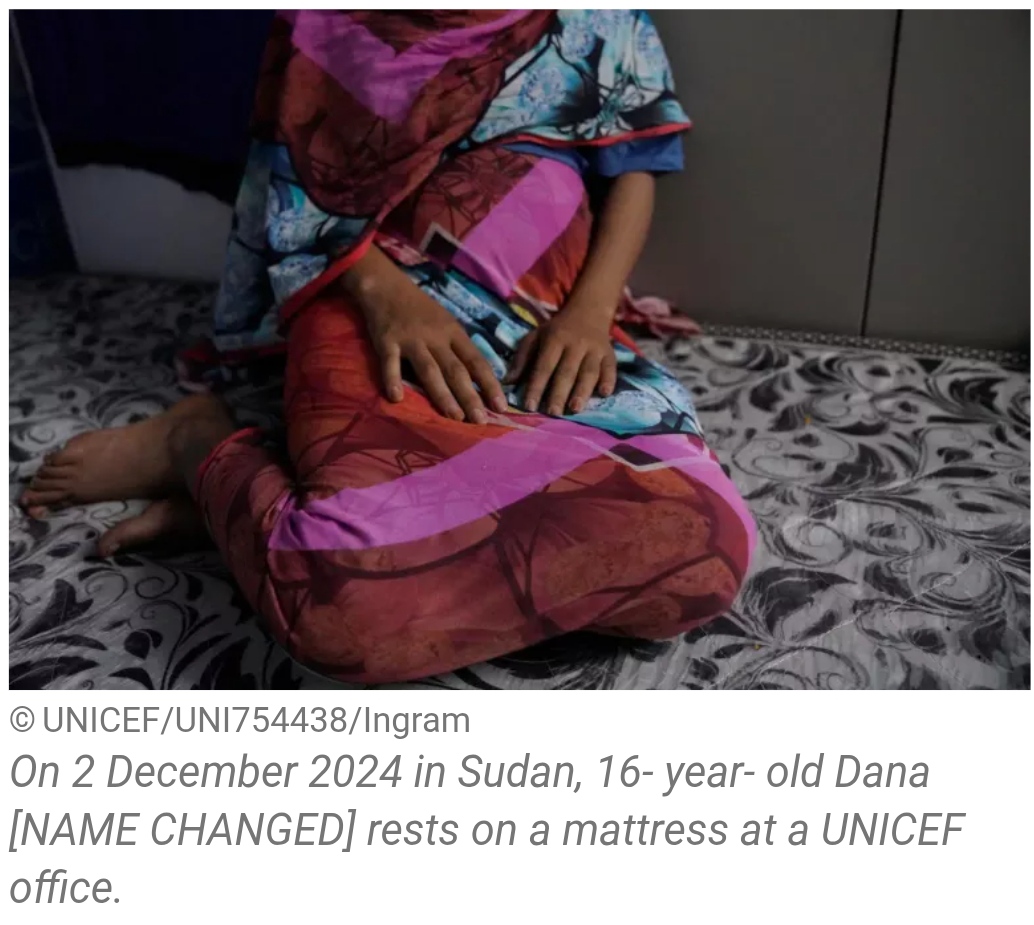Shocking Surge in Sexual Violence Against Children in Sudan Amid Ongoing Conflict: UNICEF Calls for Immediate Action.
NEW YORK:
Armed groups in Sudan are committing horrific acts of sexual violence against children, including infants as young as one year old, as the country’s ongoing conflict continues to escalate. According to recent data compiled by gender-based violence service providers in Sudan, 221 cases of child rape have been reported since the beginning of 2024, shedding light on the terrifying scale of the crisis.
These statistics only represent a fraction of the actual cases, with many survivors and their families unable to report due to fear of stigma, retribution from armed groups, and difficulty accessing necessary services. Frontline workers have also expressed concerns about confidentiality breaches and potential retaliation. Despite these barriers, the documented incidents reveal a chilling pattern of sexual violence, particularly against girls, but also against boys who are facing similar obstacles in seeking help.
“Children as young as one being raped by armed men should shock anyone to their core and compel immediate action,” said UNICEF Executive Director Catherine Russell. “Millions of children in Sudan are at risk of rape and other forms of sexual violence, which is being used as a tactic of war. This is an abhorrent violation of international law and could constitute a war crime. It must stop.”
The data reveals that 66% of the survivors are girls, while 33% are boys. The youngest survivors include 16 children under the age of five, with four of them being as young as one year old. The cases have been reported across nine states of Sudan, including both urban and rural areas. Alongside the 221 reported rape cases, there have also been 77 additional cases of sexual assault, primarily attempted rapes.
The ongoing violence and the fear of becoming victims are causing many women and girls to flee their homes and families, seeking refuge in other cities or informal displacement sites. Unfortunately, these makeshift communities are often overwhelmed with scarce resources, and the risk of further sexual violence remains high.
The long-lasting consequences of such trauma are not only physical but psychological. Survivors often face severe mental health challenges, including isolation, stigma, and rejection from their families. The risks of unwanted pregnancies, sexually transmitted infections, and long-term injuries are also significant.
In response to the growing crisis, UNICEF is working in partnership with local organizations to establish safe spaces and provide critical gender-based violence (GBV) services for survivors. These services are being integrated into health centers and mobile clinics to ensure that survivors receive timely medical care and psychosocial support. UNICEF is also training social workers, psychologists, and medical professionals to deliver community-based services and address harmful social norms.
“The widespread sexual violence in Sudan has instilled terror in people, especially children,” said Russell. “The parties to the conflict, and those with influence on them, must make every effort to put an end to these grave violations against children. These scars of war are immeasurable and long-lasting.”
UNICEF is calling for urgent action from the international community, demanding that:
- The Government of Sudan and all conflict parties respect international humanitarian and human rights laws, with a particular focus on the protection of children.
- Sexual violence as a tactic of war be ended immediately.
- The protection of essential service infrastructure and providers, allowing lifesaving aid and support to continue.
- Humanitarian workers be granted safe access to deliver aid and families be able to seek the support they need without fear of violence or retaliation.
- Donors prioritize funding for gender-based violence programs as lifesaving, with a focus on strengthening humanitarian responses and holding perpetrators accountable.
“The time to act is now,” Russell concluded. “Without immediate intervention, Sudan’s sexual violence crisis will only continue to worsen, leaving an indelible mark on the children and families who are already suffering the unimaginable consequences of war.”


